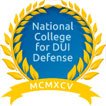Las Vegas Identity Theft Attorney
Stealing another person’s identity or impersonating someone using their personal identifying information is a crime known as identity theft. A conviction on charges of identity theft, including phishing or other cyberscams, can result in severe penalties.
If you have been accused of this crime in Nevada, you need an experienced identity theft attorney to protect your rights and freedom. At the Law Offices of Joel M. Mann, our Las Vegas legal team is prepared to act quickly in your defense. Our knowledgeable ID theft lawyer represents clients in all of Nevada’s state and federal courts and offers a transparent pricing structure that lets you know how much your case will cost upfront. Contact our firm today to learn more in a free, confidential consultation.
What is Identity Theft in Nevada?
According to § 205.465 of the Nevada Revised Statutes, it is unlawful for a person in Nevada to “possess, sell, or transfer a document or any personal identifying information for the purpose of establishing a false status” or identity. Identity theft can also include occupying or visiting property under false pretenses and obtaining a membership or license under false pretenses. Generally, someone who possesses a stolen identity or personal identifying information has committed the crime of identity theft. It is also a crime to help another person secure someone else’s personal identifying information.
In the context of an identity theft case, “personal identifying information” can refer to several different documents or data points. Examples include:
- Social Security Numbers
- Driver’s license numbers
- Credit card details
- Bank account information
- Personal identification numbers (PINs)
Depending on the specifics of a case, identity theft can be prosecuted as a felony under Nevada law. A person convicted of identity theft could face time in prison and fines of $10,000 or more. However, the punishment is harsher in cases in which:
- The victim was an older or otherwise vulnerable person
- There were five or more victims
- The victim lost $3,000 or more due to the identity theft
These crimes are punishable by up to 20 years in prison and a fine of up to $100,000. A person found guilty of identity theft in Nevada could also be required to pay restitution to the victim or victims.
Furthermore, the law specifies that when a person is in possession of the personal identifying information of five or more people, it creates a “rebuttable inference,” or a presumption that a fact is true, absent any evidence to the contrary. Because identity theft laws can be complicated, having an experienced identity theft lawyer on your side is crucial.
Identity Theft Under Federal Law
In response to a nationwide increase in the rates of identity theft, the United States Congress passed the Identity Theft and Assumption Deterrence Act of 1998. This law amended 18 U.S.C. § 1028, making it a federal offense to knowingly commit, attempt, or aid another party in committing identity theft.
Generally, the definitions of identity theft that apply at the state level also apply at the federal level. However, most identity theft cases are prosecuted in state criminal courts. The federal government usually prosecutes identity theft only in extreme cases involving large dollar amounts, numerous stolen identities, or identity theft that occurs across state lines.
Penalties for Identity Theft in Las Vegas
Nevada statute § 205.465 outlines the identity theft sentencing guidelines. The sentences for identity theft vary depending on the circumstances:
- Possessing a stolen identity or identifying document – Possessing a stolen identity or personal identifying information is identity theft is prosecuted as a category E felony if no other violations are committed. Under NRS § 193.130, the prescribed penalties for a category E felony conviction include a minimum of one year in state prison and a maximum of four years. However, the court can suspend the sentence and offer probation.
- Possessing a stolen ID or document as false proof of age – If someone possesses a stolen ID or personal identifying information to establish false proof of age for the purpose of gaming or purchasing alcohol or tobacco, the offense is prosecuted as a misdemeanor. Under NRS § 193.150, the prescribed penalties for misdemeanor convictions include up to six months in jail and up to $1,000 in fines. Community service may be ordered in place of fines or jail time.
- Possessing a stolen ID or document to commit forgery or fraud – If someone possesses a stolen ID or identity for the purpose of committing forgery or fraud, the offense is prosecuted as a category C felony. The prescribed penalties for a category C felony include a minimum of one year and a maximum of five years in prison, plus up to $10,000 in fines.
- Selling or transferring a stolen identity or identifying document – Selling or transferring a stolen ID or identity to another party is also a category C felony, punishable by up to five years in prison and $10,000 in fines.
- Selling or transferring the identity of an older or vulnerable person – Selling or transferring the stolen ID or identity of an older or vulnerable person is prosecuted as a category B felony. The prescribed penalties for a category B felony include a minimum of one year and a maximum of 20 years in prison, plus up to $100,000 in fines.
- Selling or transferring the identity of five or more persons – Selling or transferring the stolen identities of five or more people is also prosecuted as a category B felony, punishable by up to 20 years in prison and $100,000 in fines.
- Causing an identity theft victim a loss of $3,000 or more – Causing another person to suffer financial loss or injury of $3,000 or more through identity theft is also prosecuted as a category B felony, punishable by up to 20 years in prison and $100,000 in identity theft fines.
Possible ID Theft Defenses
If you are facing identity theft charges, a skilled Nevada criminal defense attorney may rely on one or more of the following arguments in your defense:
- False accusation – The charges against you are in some way false or exaggerated.
- Authorization – The supposed victim authorized you to use their identity or identifying documents.
- Lack of intent – You had no intent to steal someone’s identity to commit an unlawful act.
- Procedural errors – The evidence against you was obtained through illegal search, seizure, or questioning and should, therefore, be dismissed.
Contact Our Skilled Identity Theft Attorneys Today
At the Law Offices of Joel M. Mann, we understand that there is more than one side to every story. Our identity fraud lawyer is committed to understanding your goals and protecting your rights at every stage of your case. We are ready to work on your case as soon as possible. Contact us today for a free consultation with an experienced identity theft attorney in Nevada.

















